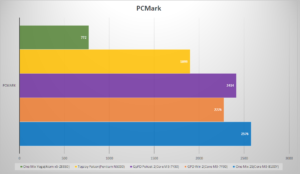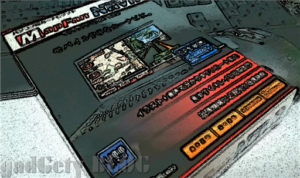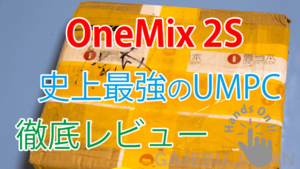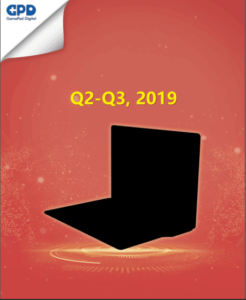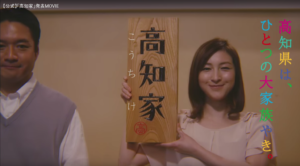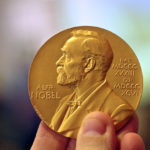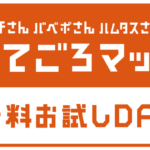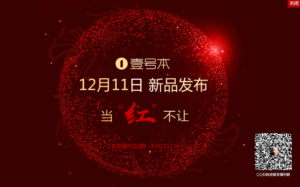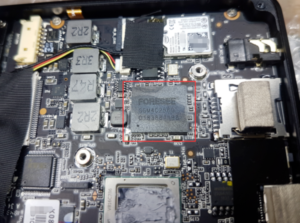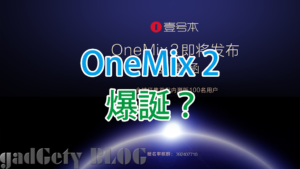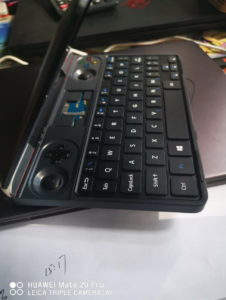
日本の首相として初めて米上下両院合同会議で演説した安倍総理。そのスピーチ全文が首相官邸ウェブサイトで公開されています。
目次
- 1 改めて感じる「ネットは教材の宝庫」
- 2 英語スピーチ原文
- 2.1 ■Introduction
- 2.2 ■America and I
- 2.3 ■American Democracy and Japan
- 2.4 ■World War II Memorial
- 2.5 ■Late Enemy, Present Friend
- 2.6 ■America and Post-War Japan
- 2.7 ■TPP
- 2.8 ■Reforms for a Stronger Japan
- 2.9 ■Post War Peace and Japan's Choice
- 2.10 ■The Alliance: its Mission for the Region
- 2.11 ■Japan's New Banner
- 2.12 ■Hope for the future
- 3 演説文日本語訳
改めて感じる「ネットは教材の宝庫」
スポンサードリンク
学生時代は先生がテープに録音したキング牧師の演説を聴いて大変感動しましたが、日本の首相が世界に向けて米国両院合同会議で英語による演説を行う時代になったということも大変感慨深いものです。
そして、その歴史的な演説はテレビやネットで生中継され、瞬く間に全世界へ配信されました。米国に居ずして全世界の人々が同時に聴いているという事実に驚嘆せずにはいられません。
これまで首相官邸のウェブサイトを覗くことはなかったのですが、各国での演説の様子を動画やテキストで紹介しています。一般人が触れることのない貴重な場面の臨場感を知ることができ、トップレベルの通訳、英文を無料で何度でも見たり聴いたりできるのは素晴らしいことだと思います。国連英検対策にも良いのではないでしょうか。
・総理の演説・記者会見など | 記者会見 | 首相官邸ホームページ
50分近くの演説を米国議員がしっかりと耳を傾け、要所要所で拍手を送り、ユーモアには笑って答え、名前を言及されればその人にも注目し、言及された側も聴衆に笑顔で挨拶をする。力強いメッセージにはスタンディングオベーション(Standing ovation)で応える様子に成熟した米国議会の一端を垣間見ることができました。

そう思いながら日本に再び目を向けると首相の英語を嘲笑したり、謝罪がなかったと皮肉をいったりする議員や報道機関の幼稚さに幻滅します。真に注目すべきはそこなのか、国民や視聴者へ伝えるべき重要な部分がそこなのか。合間を縫って放送されるニュースが芸能人の離婚問題やプロ野球の勝敗、甲高いミスコン優勝者が女子アナとして走り回る娯楽番組だかクイズ番組だかわからない報道番組。これが『Post War Peace and Japan's Choice』の結果だとしたらそこに『希望』はあるのでしょうか。
英語スピーチ原文
"Toward an Alliance of Hope" - Address to a Joint Meeting of the U.S. Congress by Prime Minister Shinzo Abe
Wednesday, April 29, 2015
■Introduction
Mr. Speaker, Mr. Vice President, distinguished members of the Senate and the House, distinguished guests, ladies and gentlemen,
Back in June, 1957, Nobusuke Kishi, my grandfather, standing right here, as Prime Minister of Japan, began his address, by saying, and I quote,
"It is because of our strong belief in democratic principles and ideals that Japan associates herself with the free nations of the world."
58 years have passed. Today, I am honored to stand here as the first Japanese Prime Minister ever to address your joint meeting. I extend my heartfelt gratitude to you for inviting me.
I have lots of things to tell you. But I am here with no ability, nor the intention, ....to filibuster.
As I stand in front of you today, the names of your distinguished colleagues that Japan welcomed as your ambassadors come back to me: the honorable Mike Mansfield, Walter Mondale, Tom Foley, and Howard Baker.
On behalf of the Japanese people, thank you so very much for sending us such shining champions of democracy.
Ambassador Caroline Kennedy also embodies the tradition of American democracy. Thank you so much, Ambassador Kennedy, for all the dynamic work you have done for all of us.
We all miss Senator Daniel Inouye, who symbolized the honor and achievements of Japanese-Americans.
■America and I
Ladies and gentlemen, my first encounter with America goes back to my days as a student, when I spent a spell in California.
A lady named Catherine Del Francia let me live in her house.
She was a widow, and always spoke of her late husband saying, “You know, he was much more handsome than Gary Cooper.” She meant it. She really did.
In the gallery, you see, my wife, Akie, is there. I don't dare ask what she says about me.
Mrs. Del Francia’s Italian cooking was simply out of this world. She was cheerful, and so kind, as to let lots and lots of people stop by at her house.
They were so diverse. I was amazed and said to myself,"America is an awesome country."
Later, I took a job at a steelmaker, and I was given the chance to work in New York.
Here in the U.S. rank and hierarchy are neither here nor there. People advance based on merit. When you discuss things you don’t pay much attention to who is junior or senior. You just choose the best idea, no matter who the idea was from.
This culture intoxicated me.
So much so, after I got elected as a member of the House, some of the old guard in my party would say, "hey, you’re so cheeky, Abe."
■American Democracy and Japan
As for my family name, it is not “Eighb.”
Some Americans do call me that every now and then, but I don’t take offense.
That's because, ladies and gentlemen, the Japanese, ever since they started modernization, have seen the very foundation for democracy in that famous line in the Gettysburg Address.
The son of a farmer-carpenter can become the President... The fact that such a country existed woke up the Japanese of the late 19th century to democracy.
For Japan, our encounter with America was also our encounter with democracy. And that was more than 150 years ago, giving us a mature history together.
■World War II Memorial
Before coming over here, I was at the World War II Memorial. It was a place of peace and calm that struck me as a sanctuary. The air was filled with the sound of water breaking in the fountains.
In one corner stands the Freedom Wall. More than 4,000 gold stars shine on the wall.
I gasped with surprise to hear that each star represents the lives of 100 fallen soldiers.
I believe those gold stars are a proud symbol of the sacrifices in defending freedom. But in those gold stars, we also find the pain, sorrow, and love for family of young Americans who otherwise would have lived happy lives.
Pearl Harbor, Bataan Corregidor, Coral Sea.... The battles engraved at the Memorial crossed my mind, and I reflected upon the lost dreams and lost futures of those young Americans.
History is harsh. What is done cannot be undone.
With deep repentance in my heart, I stood there in silent prayers for some time.
My dear friends, on behalf of Japan and the Japanese people, I offer with profound respect my eternal condolences to the souls of all American people that were lost during World War II.
■Late Enemy, Present Friend
Ladies and gentlemen, in the gallery today is Lt. Gen. Lawrence Snowden.
Seventy years ago in February, he landed on Iōtō, or the island of Iwo Jima, as a captain in command of a company.
In recent years, General Snowden has often participated in the memorial services held jointly by Japan and the U.S. on Iōtō.
He said, and I quote, “We didn’t and don’t go to Iwo Jima to celebrate victory, but for the solemn purpose to pay tribute to and honor those who lost their lives on both sides.”
Next to General. Snowden sits Diet Member Yoshitaka Shindo, who is a former member of my Cabinet. His grandfather, General Tadamichi Kuribayashi, whose valor we remember even today, was the commander of the Japanese garrison during the Battle of Iwo Jima.
What should we call this, if not a miracle of history?
Enemies that had fought each other so fiercely have become friends bonded in spirit.
To General Snowden, I say that I pay tribute to your efforts for reconciliation. Thank you so very much.
■America and Post-War Japan
Post war, we started out on our path bearing in mind feelings of deep remorse over the war. Our actions brought suffering to the peoples in Asian countries. We must not avert our eyes from that. I will uphold the views expressed by the previous prime ministers in this regard.
We must all the more contribute in every respect to the development of Asia. We must spare no effort in working for the peace and prosperity of the region.
Reminding ourselves of all that, we have come all this way. I am proud of this path we have taken.
70 years ago, Japan had been reduced to ashes.
Then came each and every month from the citizens of the United States gifts to Japan like milk for our children and warm sweaters, and even goats. Yes, from America, 2,036 goats came to Japan.
And it was Japan that received the biggest benefit from the very beginning by the post-war economic system that the U.S. had fostered by opening up its own market and calling for a liberal world economy.
Later on, from the 1980’s, we saw the rise of the Republic of Korea, Taiwan, the ASEAN countries, and before long, China as well.
This time, Japan too devotedly poured in capital and technologies to support their growths.
Meanwhile in the U.S., Japan created more employment than any other foreign nation but one, coming second only to the U.K.
■TPP
In this way, prosperity was fostered first by the U.S., and second by Japan. And prosperity is nothing less than the seedbed for peace.
Involving countries in Asia-Pacific whose backgrounds vary, the U.S. and Japan must take the lead. We must take the lead to build a market that is fair, dynamic, sustainable, and is also free from the arbitrary intentions of any nation.
In the Pacific market, we cannot overlook sweat shops or burdens on the environment. Nor can we simply allow free riders on intellectual property.
No. Instead, we can spread our shared values around the world and have them take root: the rule of law, democracy, and freedom.
That is exactly what the TPP is all about.
Furthermore, the TPP goes far beyond just economic benefits. It is also about our security. Long-term, its strategic value is awesome. We should never forget that.
The TPP covers an area that accounts for 40 per cent of the world economy, and one third of global trade. We must turn the area into a region for lasting peace and prosperity.
That is for the sake of our children and our children's children.
As for U.S. - Japan negotiations, the goal is near. Let us bring the TPP to a successful conclusion through our joint leadership.
■Reforms for a Stronger Japan
As a matter of fact, I have something I can tell you now.
It was about 20 years ago. The GATT negotiations for agriculture were going on.
I was much younger, and like a ball of fire, and opposed to opening Japan's agricultural market. I even joined farmers' representatives in a rally in front of the Parliament.
However, Japan’s agriculture has gone into decline over these last 20 years. The average age of our farmers has gone up by 10 years and is now more than 66 years old.
Japan's agriculture is at a crossroads. In order for it to survive, it has to change now.
We are bringing great reforms toward the agriculture policy that's been in place for decades. We are also bringing sweeping reforms to our agricultural cooperatives that have not changed in 60 long years.
Corporate governance in Japan is now fully in line with global standards, because we made it stronger.
Rock-solid regulations are being broken in such sectors as medicine and energy. And I am the spearhead.
To turn around our depopulation, I am determined to do whatever it takes. We are changing some of our old habits to empower women so they can get more actively engaged in all walks of life.
In short, Japan is right in the middle of a quantum leap.
My dear members of the Congress, please do come and see the new Japan, where we have regained our spirit of reform and our sense of speed.
Japan will not run away from any reforms. We keep our eyes only on the road ahead and push forward with structural reforms.
That's TINA: There Is No Alternative. And there is no doubt about it whatsoever.
■Post War Peace and Japan's Choice
My dear colleagues, the peace and security of the post-war world was not possible without American leadership.
Looking back, it makes me happy all the time that Japan of years past made the right decision.
As I told you at the outset, citing my grandfather, that decision was to choose a path.
That's the path for Japan to ally itself with the U.S., and to go forward as a member of the Western world.
In the end, together with the U.S. and other like-minded democracies, we won the Cold War.
That's the path that made Japan grow and prosper. And even today, there is no alternative.
■The Alliance: its Mission for the Region
My dear colleagues, we support the “rebalancing” by the U.S. in order to enhance the peace and security of the Asia-Pacific region.
And I will state clearly. We will support the U.S. effort first, last, and throughout.
Japan has deepened its strategic relations with Australia and India. We are enhancing our cooperation across many fields with the countries of ASEAN and the Republic of Korea.
Adding those partners to the central pillar that is the U.S.-Japan alliance, our region will get stable remarkably more.
Now, Japan will provide up to 2.8 billion dollars in assistance to help improve U.S. bases in Guam, which will gain strategic significance even more in the future.
As regards the state of Asian waters, let me underscore here my three principles.
First, states shall make their claims based on international law.
Second, they shall not use force or coercion to drive their claims.
And third, to settle disputes, any disputes, they shall do so by peaceful means.
We must make the vast seas stretching from the Pacific to the Indian Oceans seas of peace and freedom, where all follow the rule of law.
For that very reason we must fortify the U.S.-Japan alliance. That is our responsibility.
Now, let me tell you.
In Japan we are working hard to enhance the legislative foundations for our security.
Once in place, Japan will be much more able to provide a seamless response for all levels of crisis.
These enhanced legislative foundations should make the cooperation between the U.S. military and Japan's Self Defense Forces even stronger, and the alliance still more solid, providing credible deterrence for the peace in the region.
This reform is the first of its kind and a sweeping one in our post-war history. We will achieve this by this coming summer.
Now, I have something to share with you.
The day before yesterday Secretaries Kerry and Carter met our Foreign Minister Kishida and Defense Minister Nakatani for consultations.
As a result, we now have a new framework. A framework to better put together the forces of the U.S. and Japan.
A framework that is in line with the legislative attempts going on in Japan.
That is what's necessary to build peace, more reliable peace in the region. And that is namely the new Defense Cooperation Guidelines.
Yesterday, President Obama and I fully agreed on the significance of these Guidelines.
Ladies and gentlemen, we agreed on a document that is historic.
■Japan's New Banner
In the early 1990s, in the Persian Gulf Japan's Self-Defense Forces swept away sea mines.
For 10 years in the Indian Ocean, Japanese Self-Defense Forces supported your operation to stop the flow of terrorists and arms.
Meanwhile in Cambodia, the Golan Heights, Iraq, Haiti, and South Sudan, members of our Self-Defense Forces provided humanitarian support and peace keeping operations. Their number amounts to 50,000.
Based on this track record, we are resolved to take yet more responsibility for the peace and stability in the world.
It is for that purpose we are determined to enact all necessary bills by this coming summer. And we will do exactly that.
We must make sure human security will be preserved in addition to national security. That's our belief, firm and solid.
We must do our best so that every individual gets education, medical support, and an opportunity to rise to be self-reliant.
Armed conflicts have always made women suffer the most. In our age, we must realize the kind of world where finally women are free from human rights abuses.
Our servicemen and women have made substantial accomplishments. So have our aid workers who have worked so steadily.
Their combined sum has given us a new self-identity.
That's why we now hold up high a new banner that is "proactive contribution to peace based on the principle of international cooperation."
Let me repeat. "Proactive contribution to peace based on the principle of international cooperation" should lead Japan along its road for the future.
Problems we face include terrorism, infectious diseases, natural disasters and climate change.
The time has come for the U.S.-Japan alliance to face up to and jointly tackle those challenges that are new.
After all our alliance has lasted more than a quarter of the entire history of the United States.
It is an alliance that is sturdy, bound in trust and friendship, deep between us.
No new concept should ever be necessary for the alliance that connects us, the biggest and the second biggest democratic powers in the free world, in working together.
Always, it is an alliance that cherishes our shared values of the rule of law, respect for human rights and freedom.
■Hope for the future
When I was young in high school and listened to the radio, there was a song that flew out and shook my heart.
It was a song by Carol King.
“When you're down and troubled, ...close your eyes and think of me, and I'll be there to brighten up even your darkest night.”
And that day, March 11, 2011, a big quake, a tsunami, and a nuclear accident hit the northeastern part of Japan.
The darkest night fell upon Japan.
But it was then we saw the U.S. armed forces rushing to Japan to the rescue at a scale never seen or heard before.
Lots and lots of people from all corners of the U.S. extended the hand of assistance to the children in the disaster areas.
Yes, we've got a friend in you.
Together with the victims you shed tears. You gave us something, something very, very precious.
That was hope, hope for the future.
Ladies and gentlemen, the finest asset the U.S. has to give to the world was hope, is hope, will be, and must always be hope.
Distinguished representatives of the citizens of the United States, let us call the U.S.-Japan alliance, an alliance of hope.
Let the two of us, America and Japan, join our hands together and do our best to make the world a better, a much better, place to live.
Alliance of hope.... Together, we can make a difference.Thank you so much.
演説文日本語訳
『希望の同盟へ』
米上下両院合同会議に於ける演説:日本国首相 安倍晋三 2015年4月29日
■はじめに
議長、副大統領、上院議員、下院議員の皆様、ゲストと、すべての皆様、1957年6月、日本の首相としてこの演台に立った私の祖父、岸信介は、次のように述べて演説を始めました。
「日本が、世界の自由主義国と提携しているのも、民主主義の原則と理想を確信しているからであります」。以来58年、このたびは上下両院合同会議に日本国首相として初めてお話する機会を与えられましたことを、光栄に存じます。お招きに、感謝申し上げます。
申し上げたいことはたくさんあります。でも「フィリバスター」(長時間演説による議事妨害)をする意図、能力ともに、ありません。皆様を前にして胸中を去来しますのは、日本が大使としてお迎えした偉大な議会人のお名前です。
マイク・マンスフィールド、ウォルター・モンデール、トム・フォーリー、そしてハワード・ベーカー。民主主義の輝くチャンピオンを大使として送って下さいましたことを、日本国民を代表して、感謝申し上げます。
キャロライン・ケネディ大使も、米国民主主義の伝統を体現する方です。大使の活躍に、感謝申し上げます。私ども、残念に思いますのは、ダニエル・イノウエ上院議員がこの場においでにならないことです。日系アメリカ人の栄誉とその達成を、一身に象徴された方でした。
■アメリカと私
私個人とアメリカとの出会いは、カリフォルニアで過ごした学生時代にさかのぼります。家に住まわせてくれたのは、キャサリン・デル・フランシア夫人。寡婦でした。亡くした夫のことを、いつもこう言いました、「ゲイリー・クーパーより男前だったのよ」と。心から信じていたようです。
ギャラリーに、私の妻、昭恵がいます。彼女が日ごろ、私のことをどう言っているのかはあえて聞かないことにします。デル・フランシア夫人のイタリア料理は、世界一。彼女の明るさと親切は、たくさんの人をひきつけました。その人たちがなんと多様なこと。「アメリカは、すごい国だ」。驚いたものです。
のち、鉄鋼メーカーに就職した私は、ニューヨーク勤務の機会を与えられました。
上下関係にとらわれない実力主義。地位や長幼の差に関わりなく意見を戦わせ、正しい見方ならちゅうちょなく採用する。
この文化に毒されたのか、やがて政治家になったら、先輩大物議員たちに、アベは生意気だと随分言われました。
■アメリカ民主主義と日本
私の名字ですが、「エイブ」ではありません。アメリカの方に時たまそう呼ばれると、悪い気はしません。民主政治の基礎を、日本人は、近代化を始めてこのかた、ゲティズバーグ演説の有名な一節に求めてきたからです。
農民大工の息子が大統領になれる――、そういう国があることは、19世紀後半の日本を、民主主義に開眼させました。日本にとって、アメリカとの出会いとは、すなわち民主主義との遭遇でした。出会いは150年以上前にさかのぼり、年季を経ています。
■第2次大戦メモリアル
先刻私は、第2次大戦メモリアルを訪れました。神殿を思わせる、静謐(せいひつ)な場所でした。耳朶(じだ)を打つのは、噴水の、水の砕ける音ばかり。一角にフリーダム・ウォールというものがあって、壁面には金色の、4000個を超す星が埋め込まれている。その星一つ、ひとつが、斃(たお)れた兵士100人分の命を表すと聞いたとき、私を戦慄が襲いました。
金色(こんじき)の星は、自由を守った代償として、誇りのシンボルに違いありません。しかしそこには、さもなければ幸福な人生を送っただろうアメリカの若者の、痛み、悲しみが宿っている。家族への愛も。
真珠湾、バターン・コレヒドール、珊瑚海……、メモリアルに刻まれた戦場の名が心をよぎり、私はアメリカの若者の、失われた夢、未来を思いました。歴史とは実に取り返しのつかない、苛烈なものです。私は深い悔悟を胸に、しばしその場に立って、黙とうをささげました。
親愛なる、友人の皆さん、日本国と、日本国民を代表し、先の戦争に斃れた米国の人々の魂に、深い一礼をささげます。とこしえの、哀悼をささげます。
■かつての敵、今日の友
みなさま、いまギャラリーに、ローレンス・スノーデン海兵隊中将がお座りです。70年前の2月、23歳の海兵隊大尉として中隊を率い、硫黄島に上陸した方です。近年、中将は、硫黄島で開く日米合同の慰霊祭にしばしば参加してこられました。こう、おっしゃっています。
「硫黄島には、勝利を祝うため行ったのではない、行っているのでもない。その厳かなる目的は、双方の戦死者を追悼し、栄誉をたたえることだ」
もうおひとかた、中将の隣にいるのは、新藤義孝国会議員。かつて私の内閣で閣僚を務めた方ですが、この方のおじいさんこそ、勇猛がいまに伝わる栗林忠道大将・硫黄島守備隊司令官でした。これを歴史の奇跡と呼ばずして、何をそう呼ぶべきでしょう。
■アメリカと戦後日本
戦後の日本は、先の大戦に対する痛切な反省を胸に、歩みを刻みました。自らの行いが、アジア諸国民に苦しみを与えた事実から目をそむけてはならない。これらの点についての思いは、歴代首相と全く変わるものではありません。
アジアの発展にどこまでも寄与し、地域の平和と、繁栄のため、力を惜しんではならない。自らに言い聞かせ、歩んできました。この歩みを、私は、誇りに思います。焦土と化した日本に、子ども達の飲むミルク、身につけるセーターが、毎月毎月、米国の市民から届きました。山羊も、2036頭、やってきました。
米国が自らの市場を開け放ち、世界経済に自由を求めて育てた戦後経済システムによって、最も早くから、最大の便益を得たのは、日本です。下って1980年代以降、韓国が、台湾が、東南アジア諸国連合(ASEAN)諸国が、やがて中国が勃興します。今度は日本も、資本と、技術を献身的に注ぎ、彼らの成長を支えました。一方米国で、日本は外国勢として2位、英国に次ぐ数の雇用を作り出しました。
■環太平洋経済連携協定(TPP)
こうして米国が、次いで日本が育てたものは、繁栄です。そして繁栄こそは、平和の苗床です。日本と米国がリードし、生い立ちの異なるアジア太平洋諸国に、いかなる国の恣意的な思惑にも左右されない、フェアで、ダイナミックで、持続可能な市場をつくりあげなければなりません。
太平洋の市場では、知的財産がフリーライドされてはなりません。過酷な労働や、環境への負荷も見逃すわけにはいかない。許さずしてこそ、自由、民主主義、法の支配、私たちが奉じる共通の価値を、世界に広め、根づかせていくことができます。
その営為こそが、TPPにほかなりません。しかもTPPには、単なる経済的利益を超えた、長期的な、安全保障上の大きな意義があることを、忘れてはなりません。
経済規模で、世界の4割、貿易量で、世界の3分の1を占める一円に、私たちの子や、孫のために、永続的な「平和と繁栄の地域」をつくりあげていかなければなりません。日米間の交渉は、出口がすぐそこに見えています。米国と、日本のリーダーシップで、TPPを一緒に成し遂げましょう。
■強い日本へ、改革あるのみ
実は……、いまだから言えることがあります。20年以上前、関税貿易一般協定(GATT)農業分野交渉の頃です。血気盛んな若手議員だった私は、農業の開放に反対の立場をとり、農家の代表と一緒に、国会前で抗議活動をしました。
ところがこの20年、日本の農業は衰えました。農民の平均年齢は10歳上がり、いまや66歳を超えました。
日本の農業は、岐路にある。生き残るには、いま、変わらなければなりません。私たちは、長年続いた農業政策の大改革に立ち向かっています。60年も変わらずにきた農業協同組合の仕組みを、抜本的に改めます。
世界標準にのっとって、コーポレート・ガバナンスを強めました。医療・エネルギーなどの分野で、岩盤のように固い規制を、私自身が槍(やり)の穂先となりこじあけてきました。人口減少を反転させるには、何でもやるつもりです。女性に力をつけ、もっと活躍してもらうため、古くからの慣習を改めようとしています。
日本はいま、「クォンタム・リープ(量子的飛躍)」のさなかにあります。親愛なる、上院、下院議員の皆様、どうぞ、日本へ来て、改革の精神と速度を取り戻した新しい日本を見てください。日本は、どんな改革からも逃げません。ただ前だけを見て構造改革を進める。この道のほか、道なし。確信しています。
■戦後世界の平和と、日本の選択
親愛なる、同僚の皆様、戦後世界の平和と安全は、アメリカのリーダーシップなくして、ありえませんでした。省みて私が心から良かったと思うのは、かつての日本が、明確な道を選んだことです。その道こそは、冒頭、祖父の言葉にあったとおり、米国と組み、西側世界の一員となる選択にほかなりませんでした。
日本は、米国、そして志を共にする民主主義諸国とともに、最後には冷戦に勝利しました。この道が、日本を成長させ、繁栄させました。そして今も、この道しかありません。
■地域における同盟のミッション
私たちは、アジア太平洋地域の平和と安全のため、米国の「リバランス」(再均衡)を支持します。徹頭徹尾支持するということを、ここに明言します。
日本はオーストラリア、インドと、戦略的な関係を深めました。ASEANの国々や韓国と、多面にわたる協力を深めていきます。日米同盟を基軸とし、これらの仲間が加わると、私たちの地域は格段に安定します。日本は、将来における戦略的拠点の一つとして期待されるグアム基地整備事業に、28億ドルまで資金協力を実施します。
アジアの海について、私がいう3つの原則をここで強調させてください。第1に、国家が何か主張をするときは、国際法にもとづいてなすこと。第2に、武力や威嚇は、自己の主張のため用いないこと。そして第3に、紛争の解決は、あくまで平和的手段によること。
太平洋から、インド洋にかけての広い海を、自由で、法の支配が貫徹する平和の海にしなければなりません。そのためにこそ、日米同盟を強くしなくてはなりません。私たちには、その責任があります。
日本はいま、安保法制の充実に取り組んでいます。実現のあかつき、日本は、危機の程度に応じ、切れ目のない対応が、はるかによくできるようになります。この法整備によって、自衛隊と米軍の協力関係は強化され、日米同盟は、より一層堅固になります。それは地域の平和のため、確かな抑止力をもたらすでしょう。
戦後、初めての大改革です。この夏までに、成就させます。ここで皆様にご報告したいことがあります。一昨日、ケリー国務長官、カーター国防長官は、私たちの岸田外相、中谷防衛相と会って、協議をしました。いま申し上げた法整備を前提として、日米がそのもてる力をよく合わせられるようにする仕組みができました。一層確実な平和を築くのに必要な枠組みです。
それこそが、日米防衛協力の新しいガイドラインにほかなりません。昨日、オバマ大統領と私は、その意義について、互いに認め合いました。皆様、私たちは、真に歴史的な文書に、合意をしたのです。
熾烈(しれつ)に戦い合った敵は、心の紐帯(ちゅうたい)が結ぶ友になりました。スノーデン中将、和解の努力を尊く思います。ほんとうに、ありがとうございました。
■日本が掲げる新しい旗
1990年代初め、日本の自衛隊は、ペルシャ湾で機雷の掃海に当たりました。後、インド洋では、テロリストや武器の流れを断つ洋上作戦を、10年にわたって支援しました。その間、5万人にのぼる自衛隊員が、人道支援や平和維持活動に従事しました。カンボジア、ゴラン高原、イラク、ハイチや南スーダンといった国や、地域においてです。
これら実績をもとに、日本は、世界の平和と安定のため、これまで以上に責任を果たしていく。そう決意しています。そのために必要な法案の成立を、この夏までに、必ず実現します。
国家安全保障に加え、人間の安全保障を確かにしなくてはならないというのが、日本の不動の信念です。人間一人ひとりに、教育の機会を保障し、医療を提供し、自立する機会を与えなければなりません。紛争下、常に傷ついたのは、女性でした。わたしたちの時代にこそ、女性の人権が侵されない世の中を実現しなくてはいけません。
自衛隊員が積み重ねてきた実績と、援助関係者たちがたゆまず続けた努力と、その両方の蓄積は、いまやわたしたちに、新しい自己像を与えてくれました。いまや私たちが掲げるバナーは、「国際協調主義にもとづく、積極的平和主義」という旗です。繰り返しましょう、「国際協調主義にもとづく、積極的平和主義」こそは、日本の将来を導く旗印となります。
テロリズム、感染症、自然災害や、気候変動――。日米同盟は、これら新たな問題に対し、ともに立ち向かう時代を迎えました。日米同盟は、米国史全体の、4分の1以上に及ぶ期間続いた堅牢(けんろう)さを備え、深い信頼と、友情に結ばれた同盟です。自由世界第一、第二の民主主義大国を結ぶ同盟に、この先とも、新たな理由付けは全く無用です。それは常に、法の支配、人権、そして自由を尊ぶ、価値観を共にする結びつきです。
■未来への希望
まだ高校生だったとき、ラジオから流れてきたキャロル・キングの曲に、私は心を揺さぶられました。
「落ち込んだ時、困った時、……目を閉じて、私を思って。私は行く。あなたのもとに。たとえそれが、あなたにとっていちばん暗い、そんな夜でも、明るくするために」
2011年3月11日、日本に、いちばん暗い夜がきました。日本の東北地方を、地震と津波、原発の事故が襲ったのです。そして、そのときでした。米軍は、未曽有の規模で救難作戦を展開してくれました。本当にたくさんの米国人の皆さんが、東北の子供たちに、支援の手を差し伸べてくれました。
私たちには、トモダチがいました。被災した人々と、一緒に涙を流してくれた。そしてなにものにもかえられない、大切なものを与えてくれた。希望、です。米国が世界に与える最良の資産、それは、昔も、今も、将来も、希望であった、希望である、希望でなくてはなりません。
米国国民を代表する皆様。私たちの同盟を、「希望の同盟」と呼びましょう。アメリカと日本、力を合わせ、世界をもっとはるかに良い場所にしていこうではありませんか。希望の同盟――。一緒でなら、きっとできます。ありがとうございました。
ソース:

